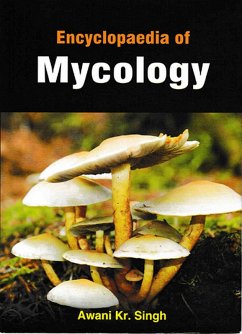Mycology is the branch of biology concerned with the study of fungi, including their genetic and biochemical properties, their taxonomy and their use to humans as a source for tinder, medicinal, food and entheogens, as well as their dangers, such as poisoning or infection. From mycology arose the field of physiopathology, the study of plant diseases, and the two disciplines remain closely related because the vast majority of plant pathogens are fungi. A biologist who studies mycology is called a mycologist. Historically, mycology was a branch of botany. Pioneer mycologists included Elias Magnus Fries, Christian Hendrik Persoon, Anton de Bary and Lewis David von Schweinitz. in the past two decades, mycology has progressed with fast pace. This book is an important publication representing these advances and multiple roles played by fungi. Contents: introduction; Biological Control of Helminth Parasites by predatory Fungi; General Concepts of Mycology; Spectrum of Mycoses; Diseases Caused by Fungi; Mycotoxicology-A Systems Approach; Durable Rust Resistance in Wheat; Soybean Disease Management; Fungi for the Biological Control of insect Pests; Fungi and the Wisconsin Mycological society; Fungi and Fungal Diseases of plants.
Dieser Download kann aus rechtlichen Gründen nur mit Rechnungsadresse in A, B, BG, CY, CZ, D, DK, EW, E, FIN, F, GR, HR, H, IRL, I, LT, L, LR, M, NL, PL, P, R, S, SLO, SK ausgeliefert werden.


